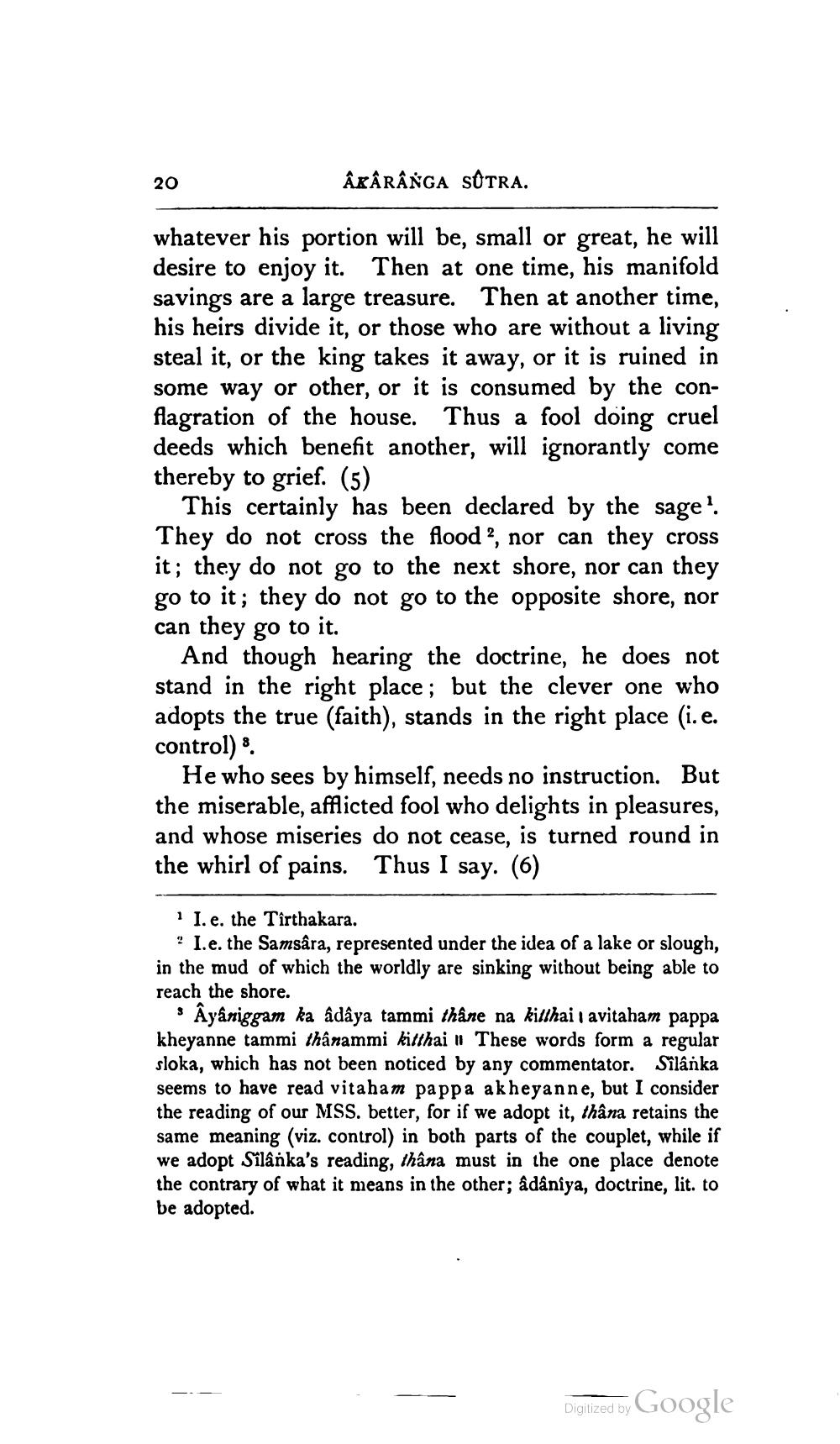________________
20
ÂRÂRÂNGA SÚTRA.
whatever his portion will be, small or great, he will desire to enjoy it. Then at one time, his manifold savings are a large treasure. Then at another time, his heirs divide it, or those who are without a living steal it, or the king takes it away, or it is ruined in some way or other, or it is consumed by the conflagration of the house. Thus a fool doing cruel deeds which benefit another, will ignorantly come thereby to grief. (5)
This certainly has been declared by the sage?. They do not cross the flood ?, nor can they cross it; they do not go to the next shore, nor can they go to it; they do not go to the opposite shore, nor can they go to it.
And though hearing the doctrine, he does not stand in the right place; but the clever one who adopts the true (faith), stands in the right place (i.e. control) %
He who sees by himself, needs no instruction. But the miserable, afflicted fool who delights in pleasures, and whose miseries do not cease, is turned round in the whirl of pains. Thus I say. (6)
1 1.e. the Tîrthakara.
: I.e. the Samsara, represented under the idea of a lake or slough, in the mud of which the worldly are sinking without being able to reach the shore.
Âyâniggam ka âdâya tammi thâne na killhai i avitaham pappa kheyanne tammi thânammi kitthai | These words form a regular sloka, which has not been noticed by any commentator. Silanka seems to have read vitaham pappa akheyanne, but I consider the reading of our MSS. better, for if we adopt it, thâna retains the same meaning (viz. control) in both parts of the couplet, while if we adopt Silanka's reading, thâna must in the one place denote the contrary of what it means in the other; adâniya, doctrine, lit. to be adopted.
Digitized by Google




